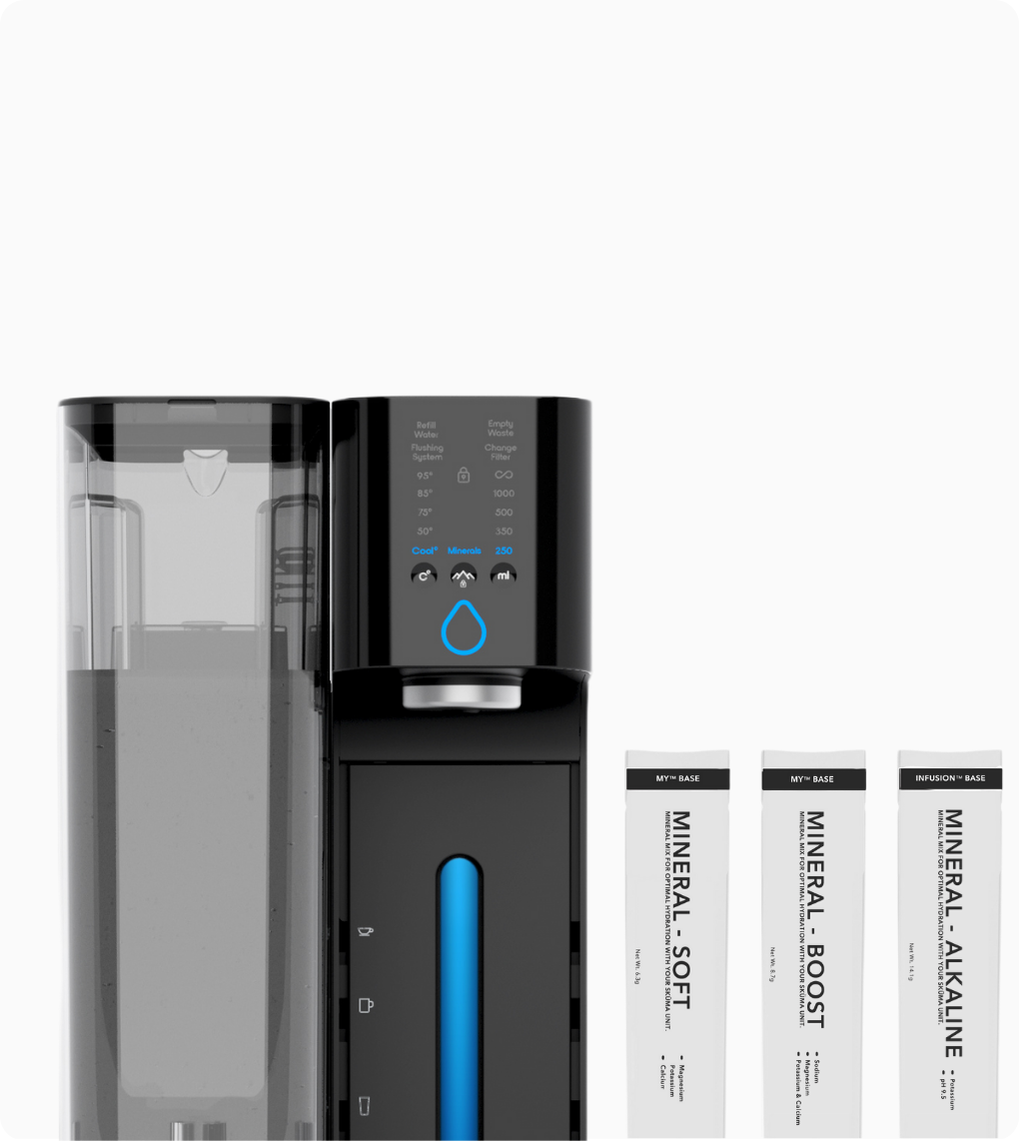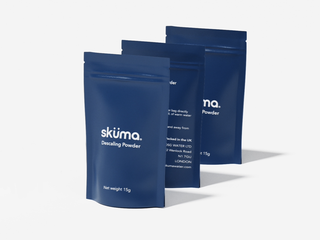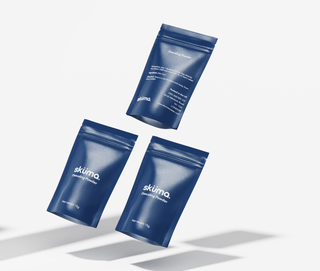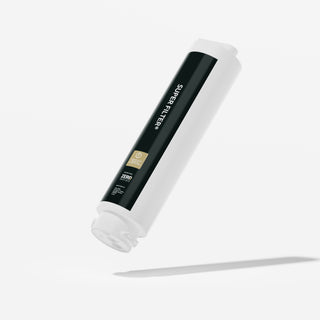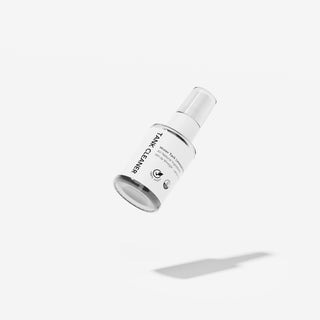When it comes to clean drinking water, not all filtration systems are created equal.
While standard filters remove basic contaminants, the Sküma Super Filter goes far beyond—leveraging a 3-stage reverse osmosis system and remineralisation to deliver water that’s not only clean, but optimised for your body.
In this article, we break down what a water filter does, how Sküma’s technology is different, and why it matters for your hydration, health, and daily performance.
What does a standard water filter do?
• Most conventional filters use activated carbon or basic sediment filtration to remove chlorine, heavy metals, and bad odours. While this improves taste, it often misses microscopic contaminants like pharmaceuticals, endocrine disruptors, and microplastics. Plus, these systems typically strip out essential minerals that your body needs for optimal function.
What makes the Sküma Super Filter different?
• The Sküma Super Filter uses a 3-stage reverse osmosis process—starting with a sediment filter to trap large particles like rust and sand, followed by a carbon block filter to remove chlorine, VOCs, and organic compounds, and finally a reverse osmosis membrane that eliminates impurities down to 0.0001 microns. This includes PFAS, heavy metals, nitrates, microplastics, bacteria, viruses, and more. The result is water that’s both ultra-pure and flow-efficient—without compromising mineral compatibility.
PFAS – The “forever chemicals”
• PFAS are man-made chemicals found in nonstick coatings, packaging, and even rainwater. They’re known to build up in the body and have been linked to cancer, hormone disruption, and immune issues. Sküma’s reverse osmosis membrane is one of the few proven technologies that removes PFAS effectively—offering long-term protection in every glass.
Microplastics – The invisible pollutant
• Recent studies show that microplastics are found in both bottled and tap water. These particles, often smaller than a human hair, can accumulate in organs over time. Thanks to its ultrafine RO membrane, Sküma filters out these particles—delivering water free from plastic contamination.
Heavy metals – Hidden health risks
• Contaminants like lead, arsenic, and mercury can enter water through corroded pipes or industrial waste. Long-term exposure is associated with cognitive issues and organ damage. Sküma’s filtration system removes up to 99% of heavy metals, keeping your water—and your body—clean and protected.
Bacteria and viruses – A physical barrier
• While standard filters struggle to remove pathogens, Sküma’s reverse osmosis membrane acts as a barrier against bacteria, viruses, and microbial cysts. This provides peace of mind, even when water sources are compromised or unreliable.
Pharmaceuticals and VOCs – The overlooked toxins
• Trace pharmaceuticals, hormone disruptors, and volatile organic compounds are increasingly common in tap water. Sküma’s combination of carbon and reverse osmosis filtration neutralises these hard-to-detect contaminants—ensuring your water supports your health, not undermines it.
Remineralised for better absorption and taste
• What sets Sküma apart isn’t just what it removes—but what it puts back. After filtration, Sküma water is remineralised with magnesium, calcium, and potassium—crucial electrolytes for hydration, muscle function, and cellular health. This improves both flavour and bioavailability, making hydration more effective.
Designed for precision, built for performance
• Sküma’s smart hydration system doesn’t just filter—it optimises. Its digital interface allows for customisation of mineral content, delivering tailored hydration for your body’s specific needs. Whether you’re an athlete, a busy professional, or focused on wellness, Sküma offers filtered water that’s engineered—not just cleaned.
Want to see a full breakdown of what is filtered by the Super Filter follow this link.
Curious how better filtration can improve your energy, focus, and skin? Learn more about the science behind the Sküma Super Filter and explore our full range of hydration solutions at skumawater.com.
Citations
• World Health Organization, 2022 – Guidelines on Drinking Water Quality
• Zhao et al., 2021 – Water Filtration & VOC Removal Efficiency
• National Sanitation Foundation (NSF), Filtration Standards
• Harvard Health, 2020 – Importance of Minerals in Water
• Journal of Water and Health, 2019 – Ultrafiltration vs. Carbon Filters


